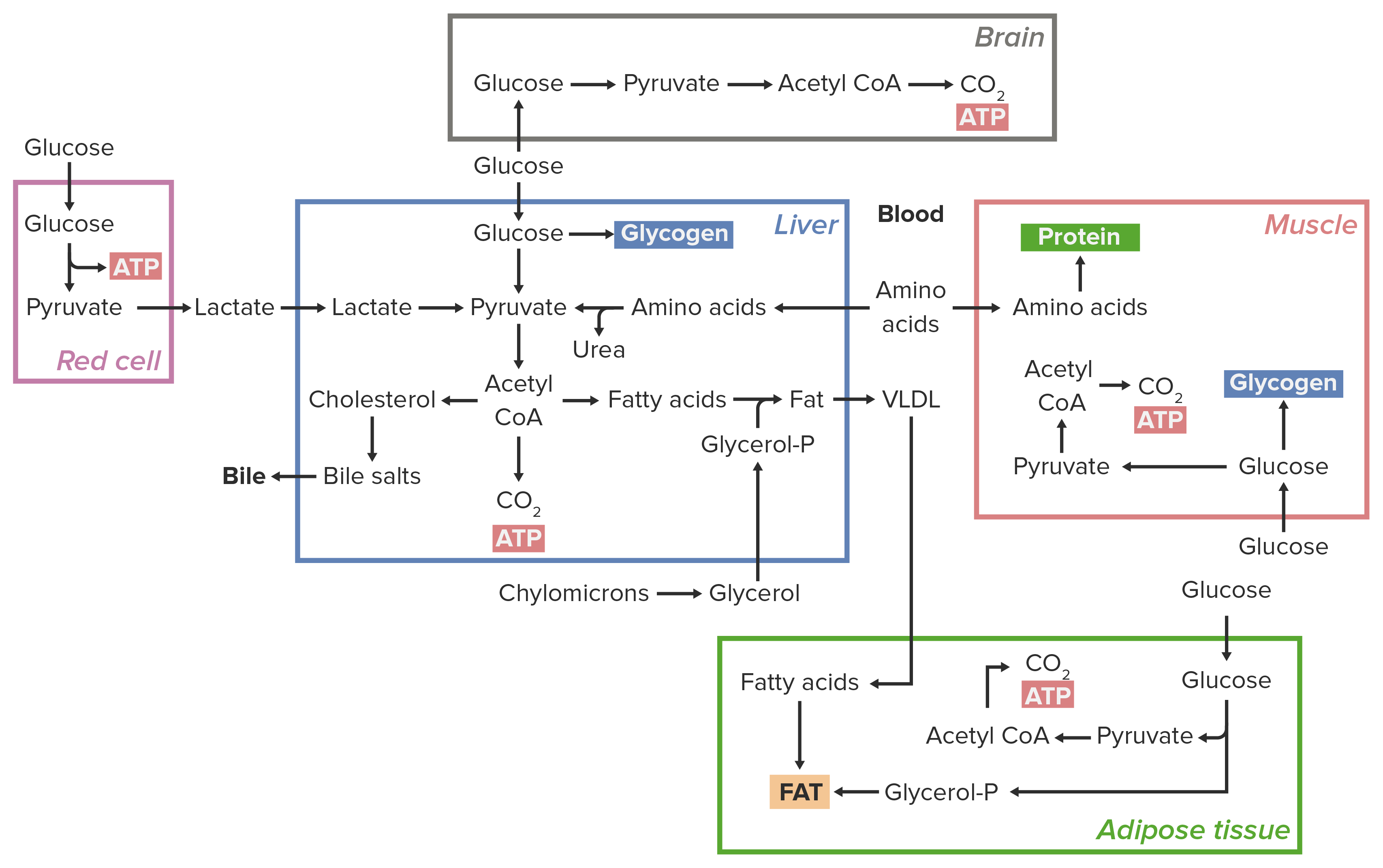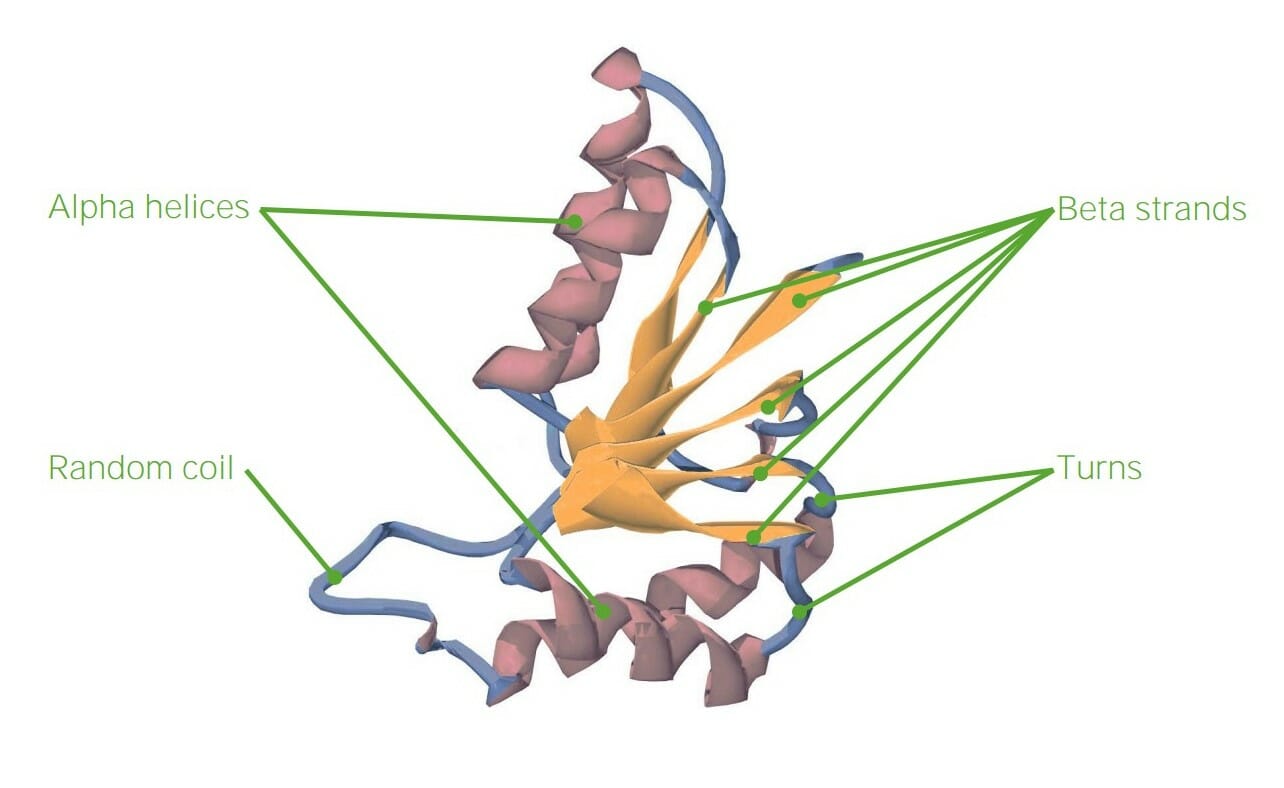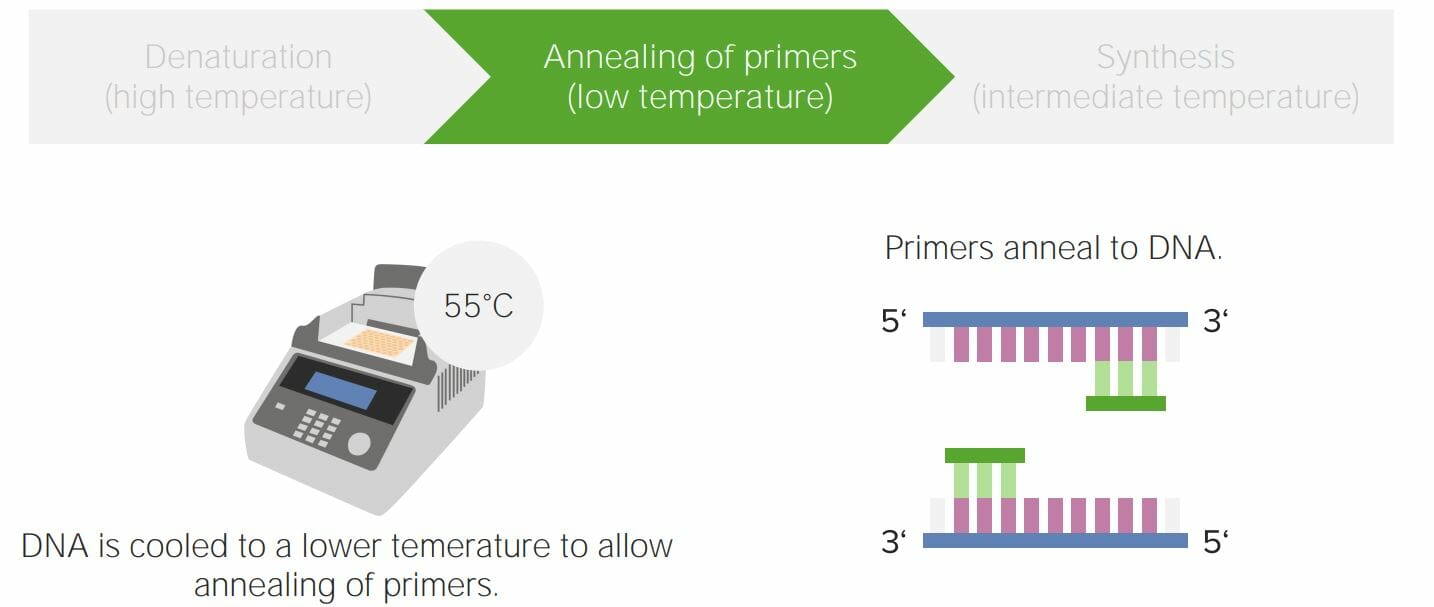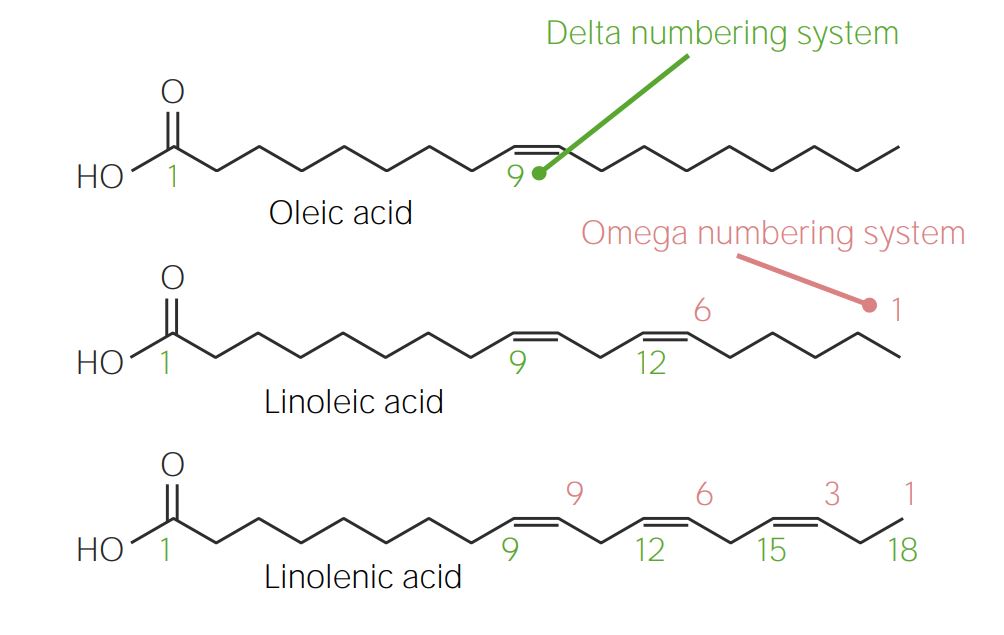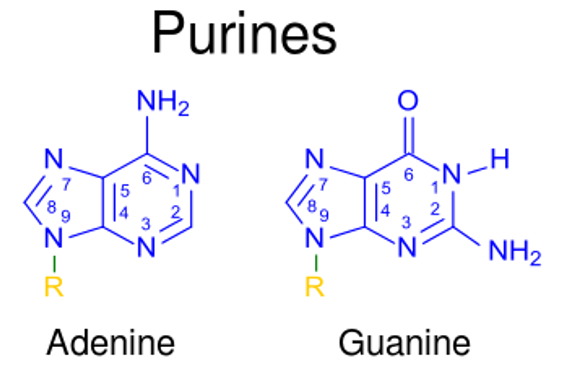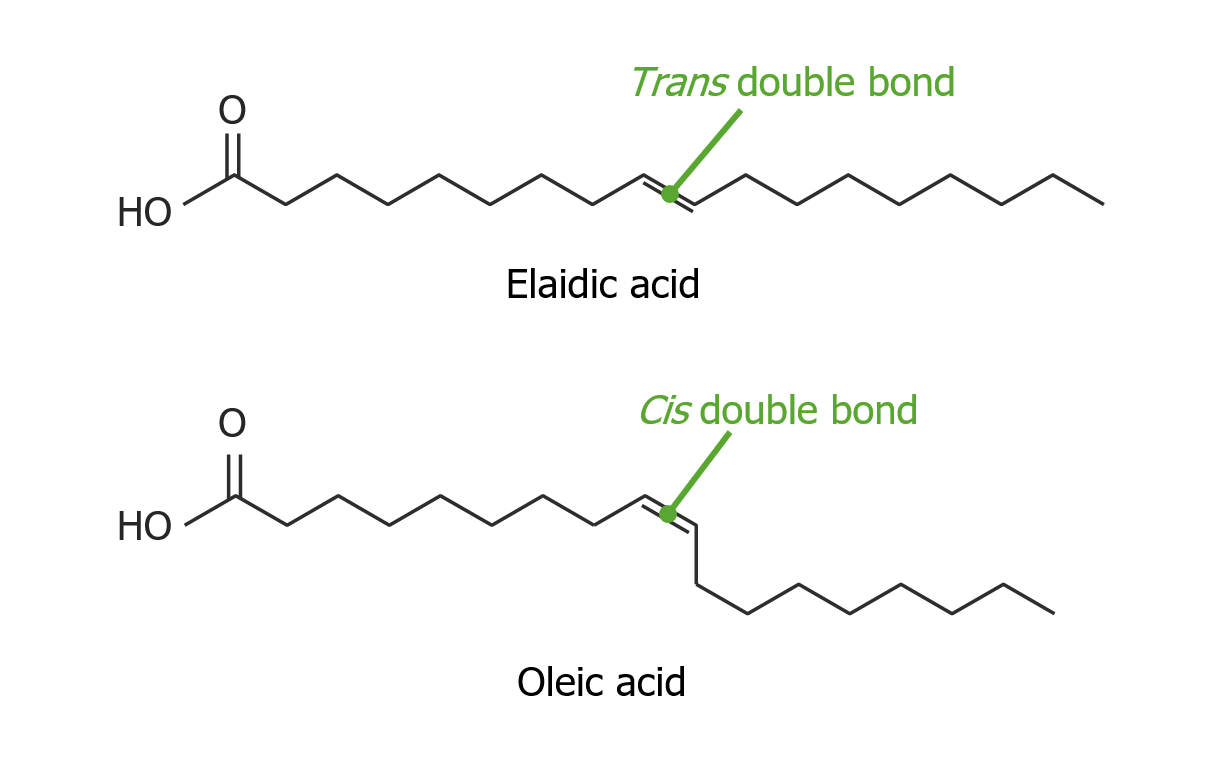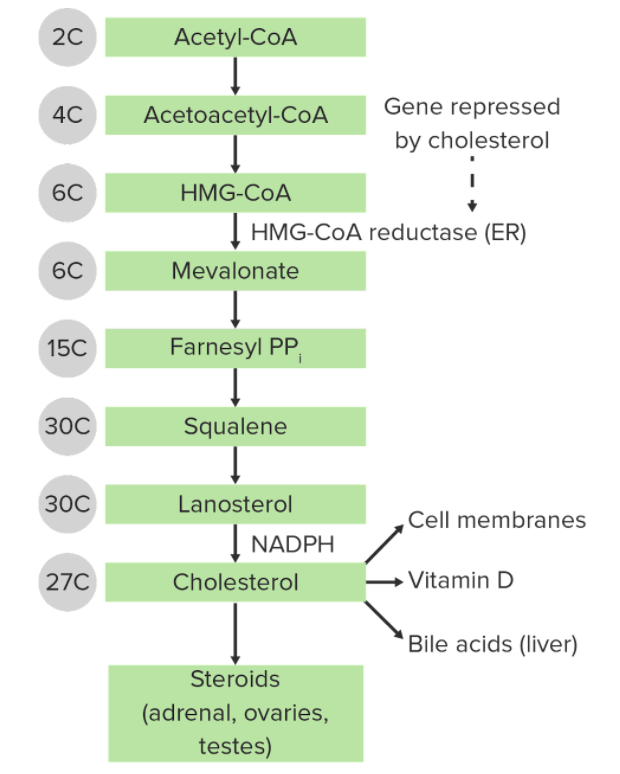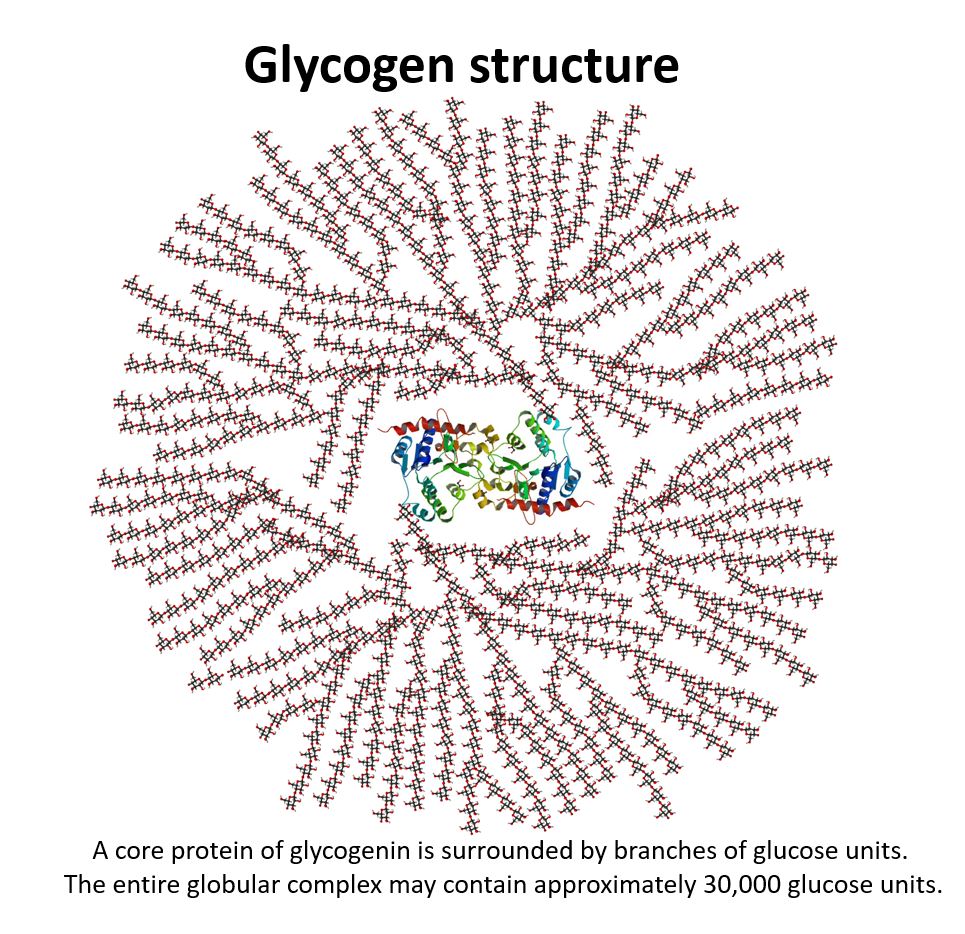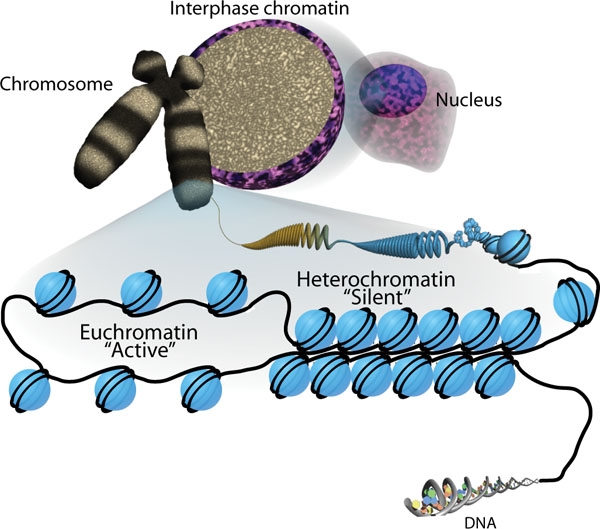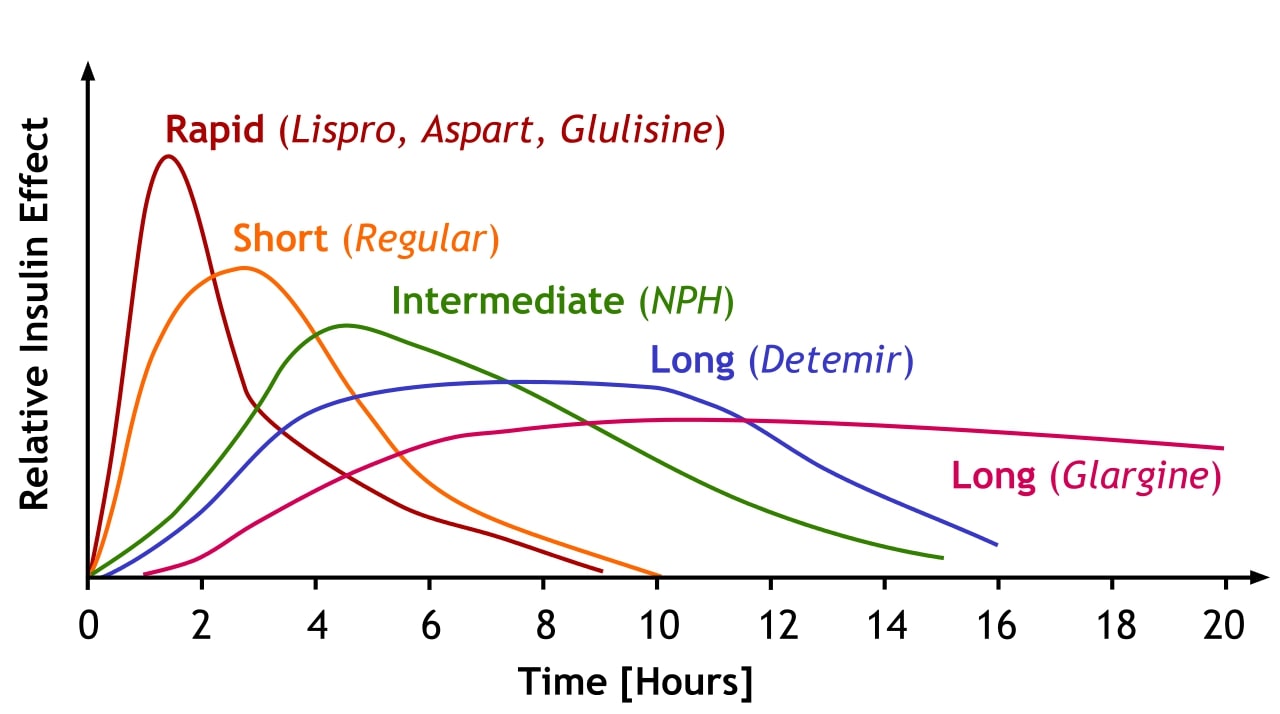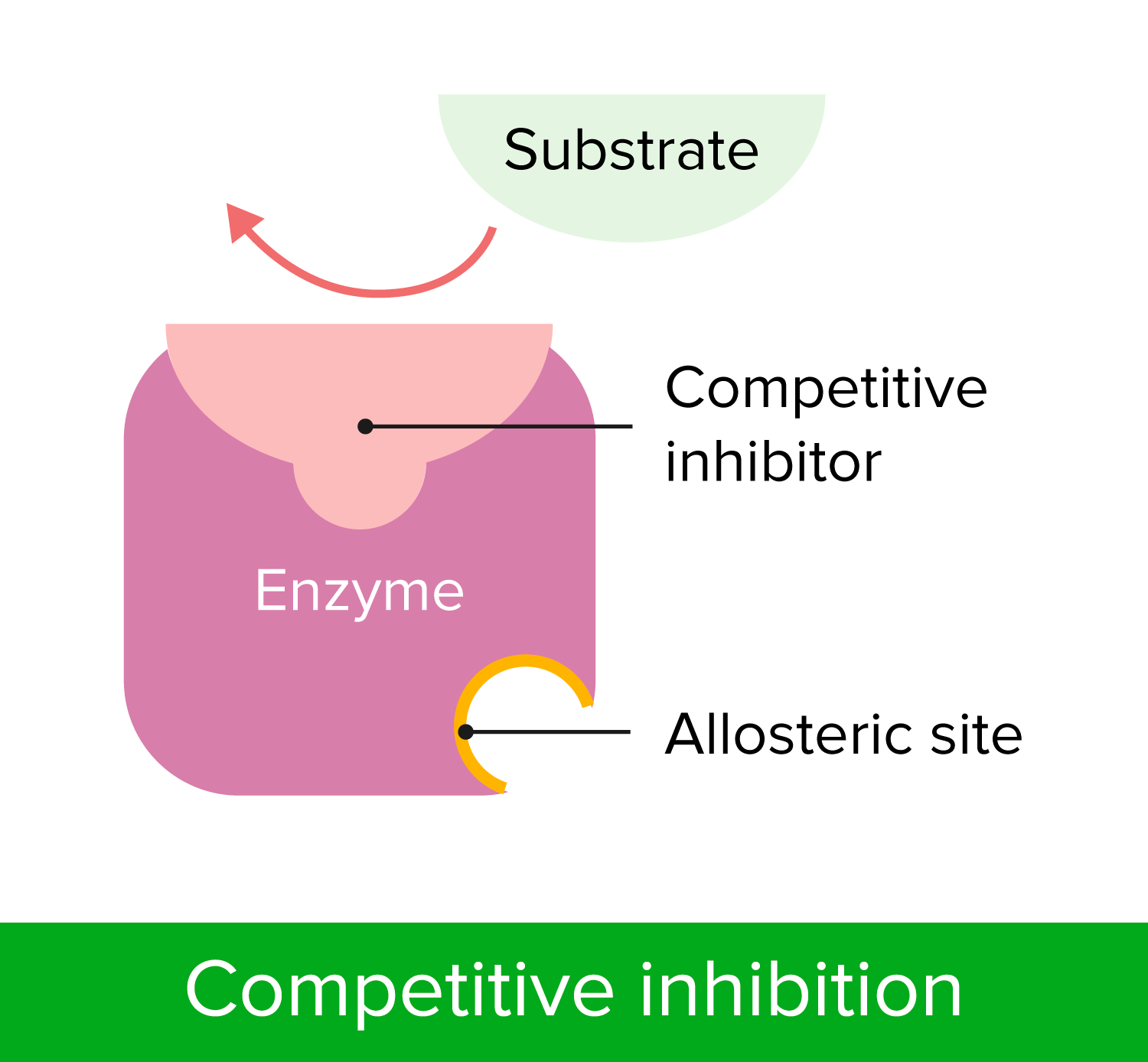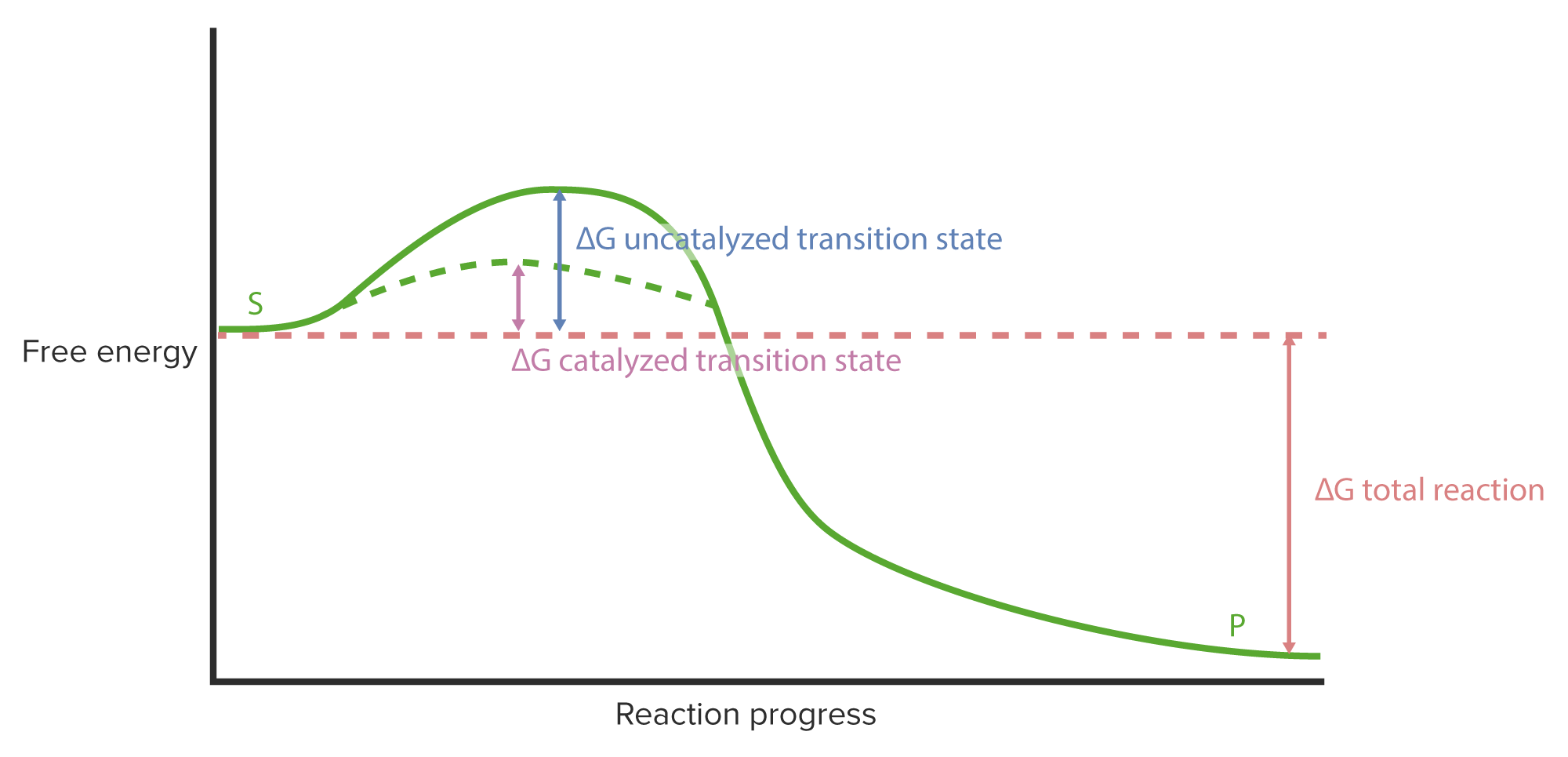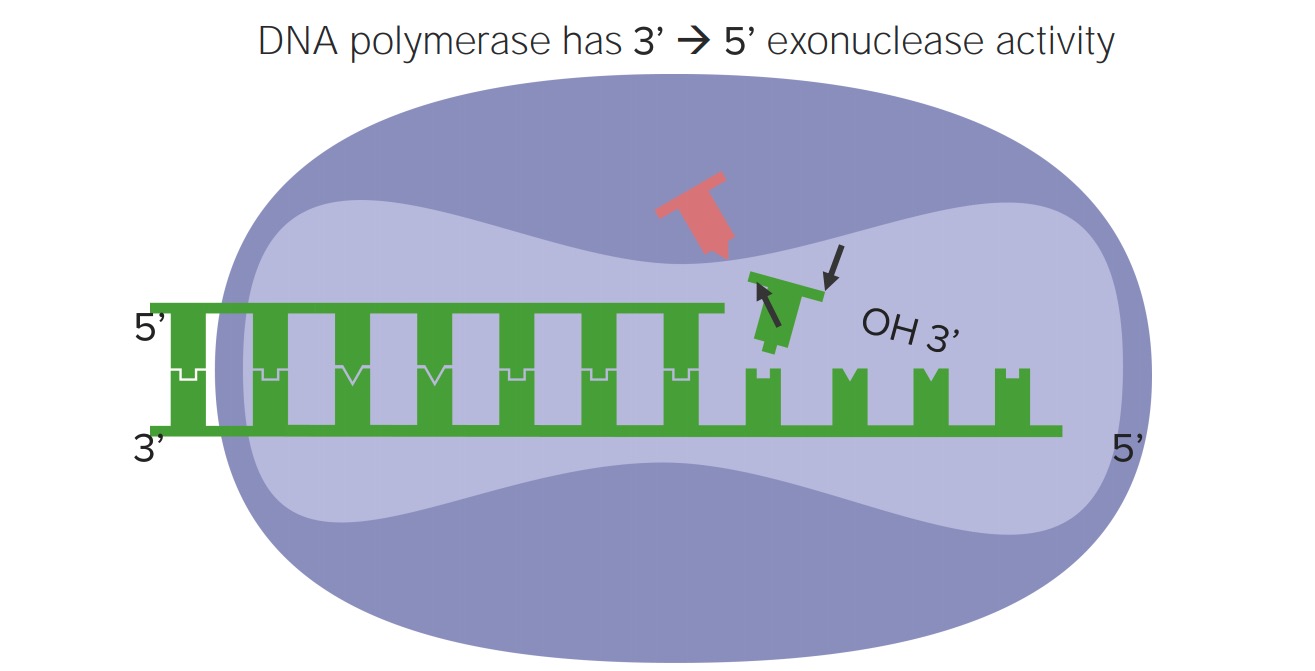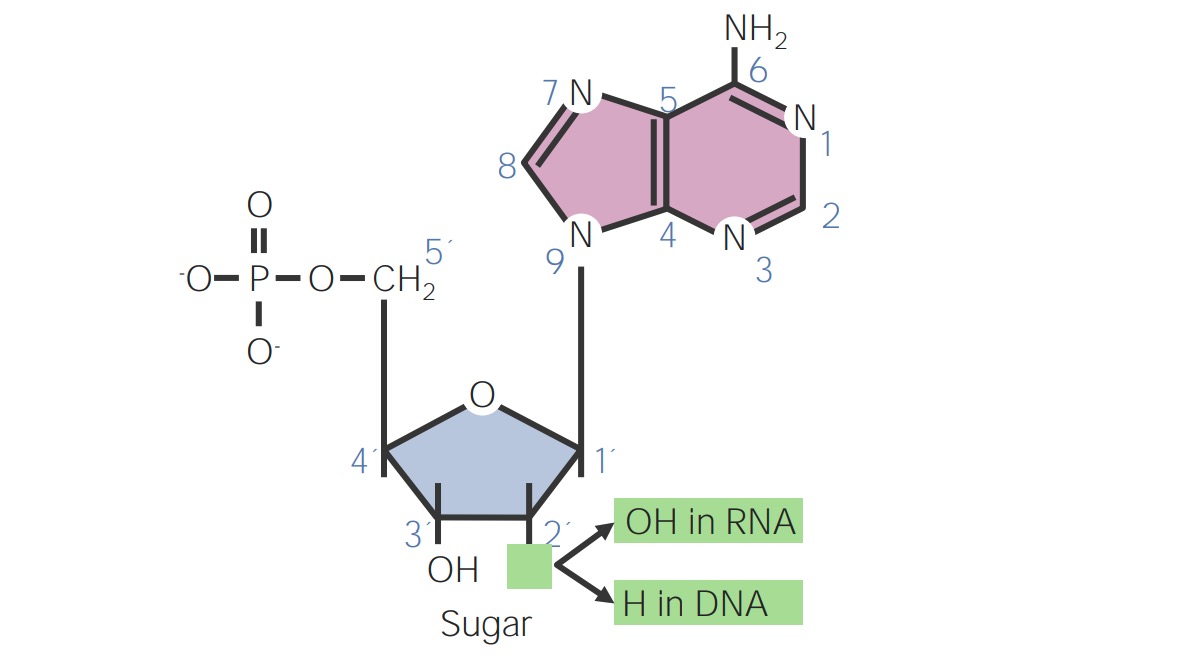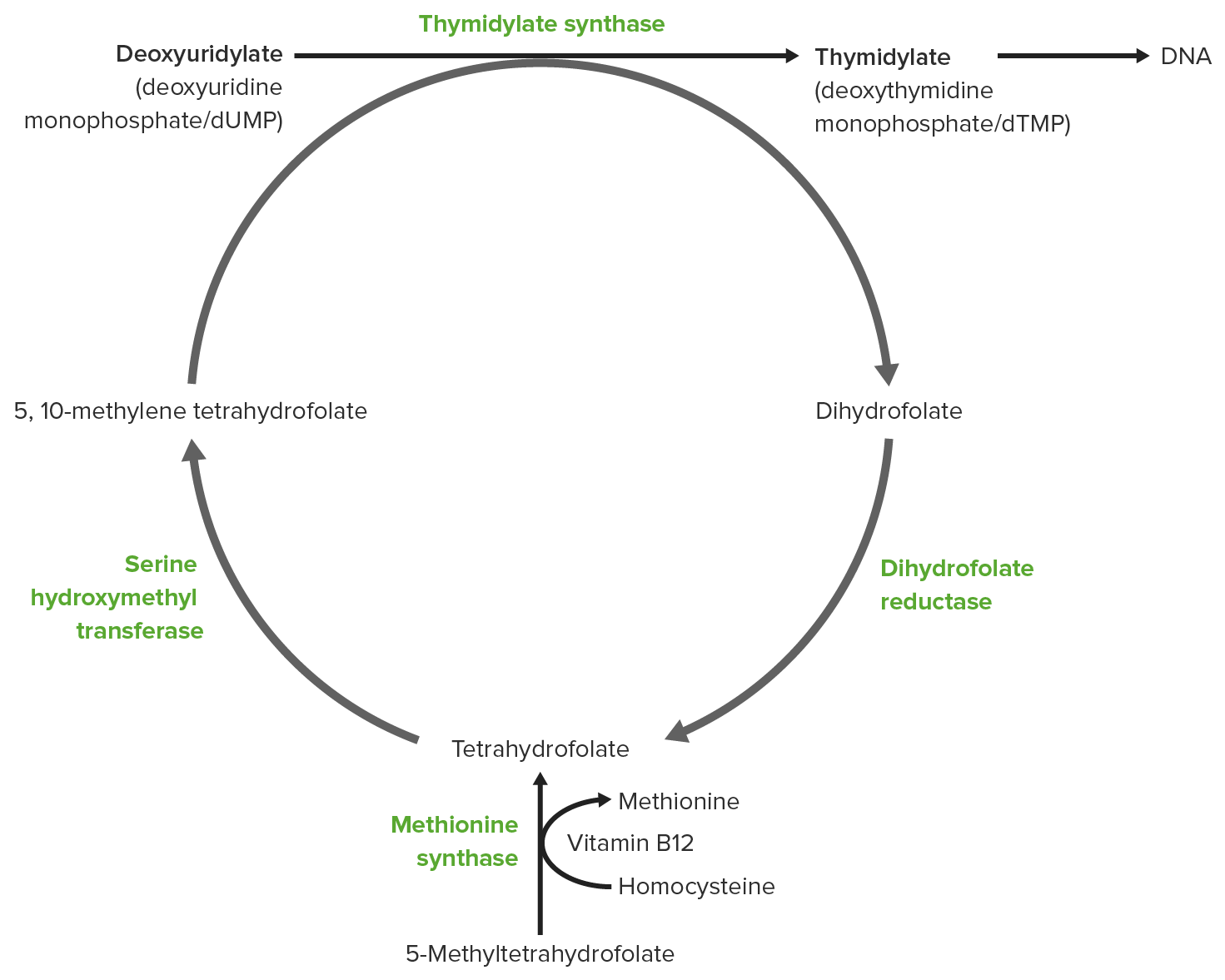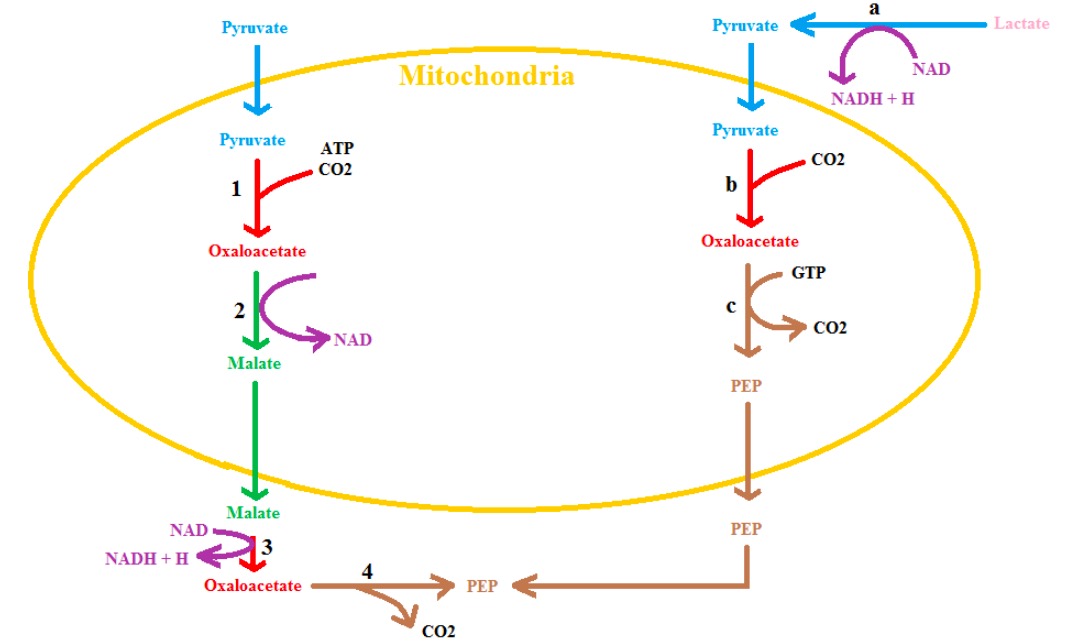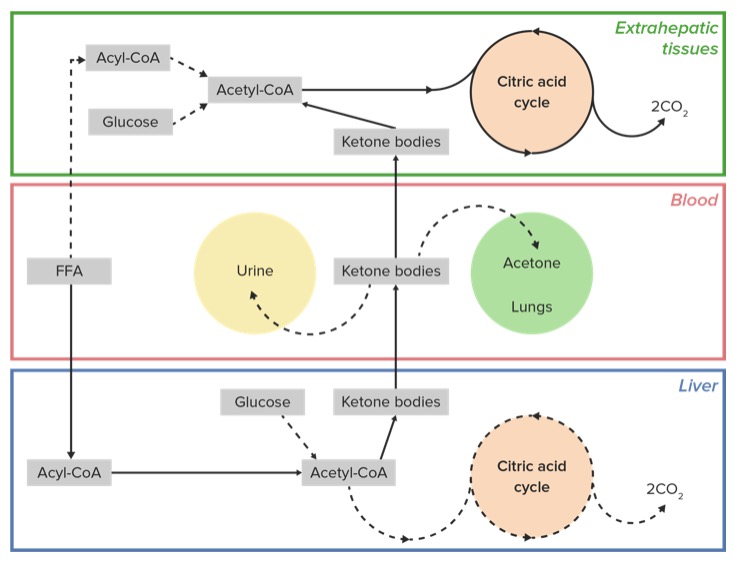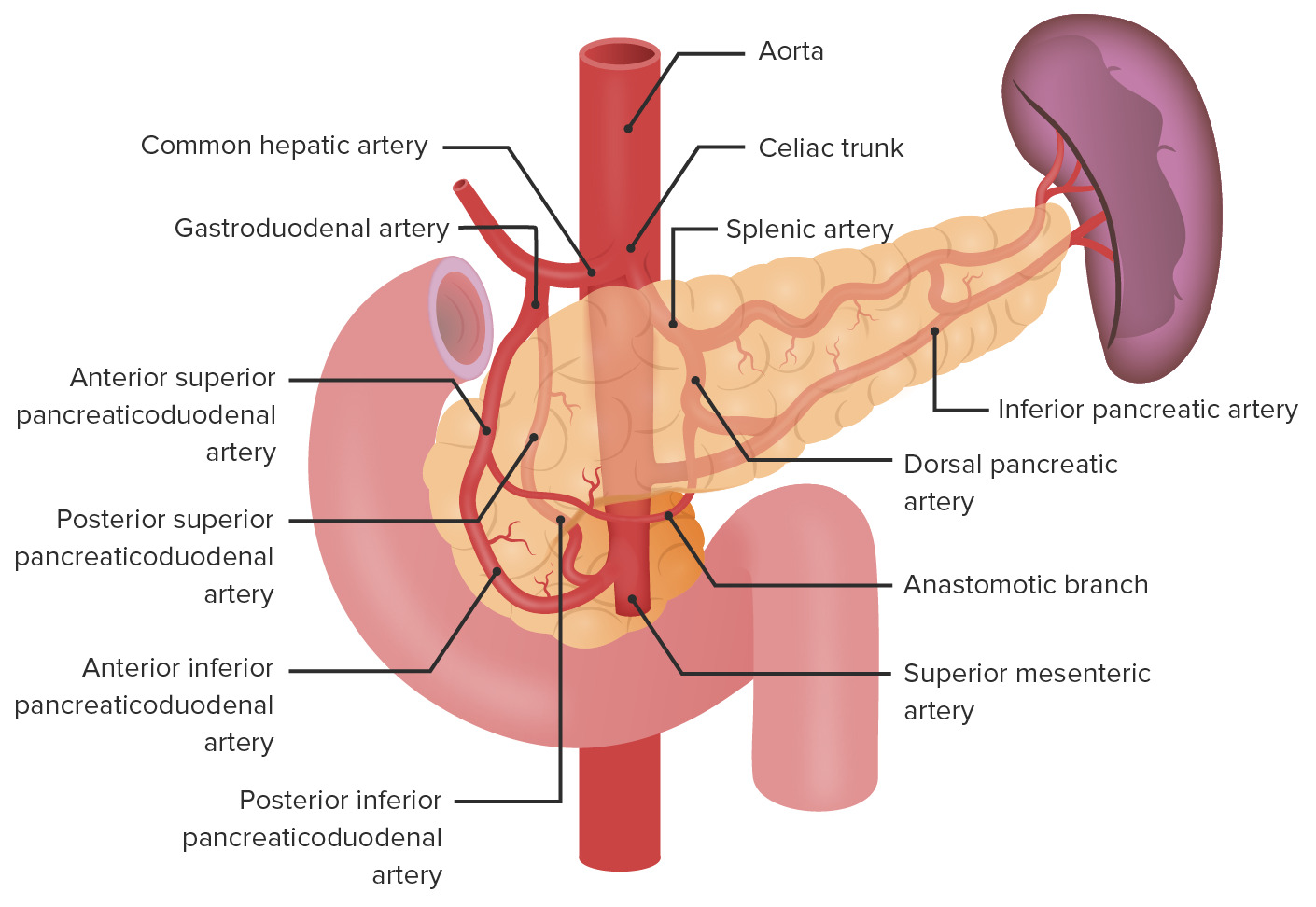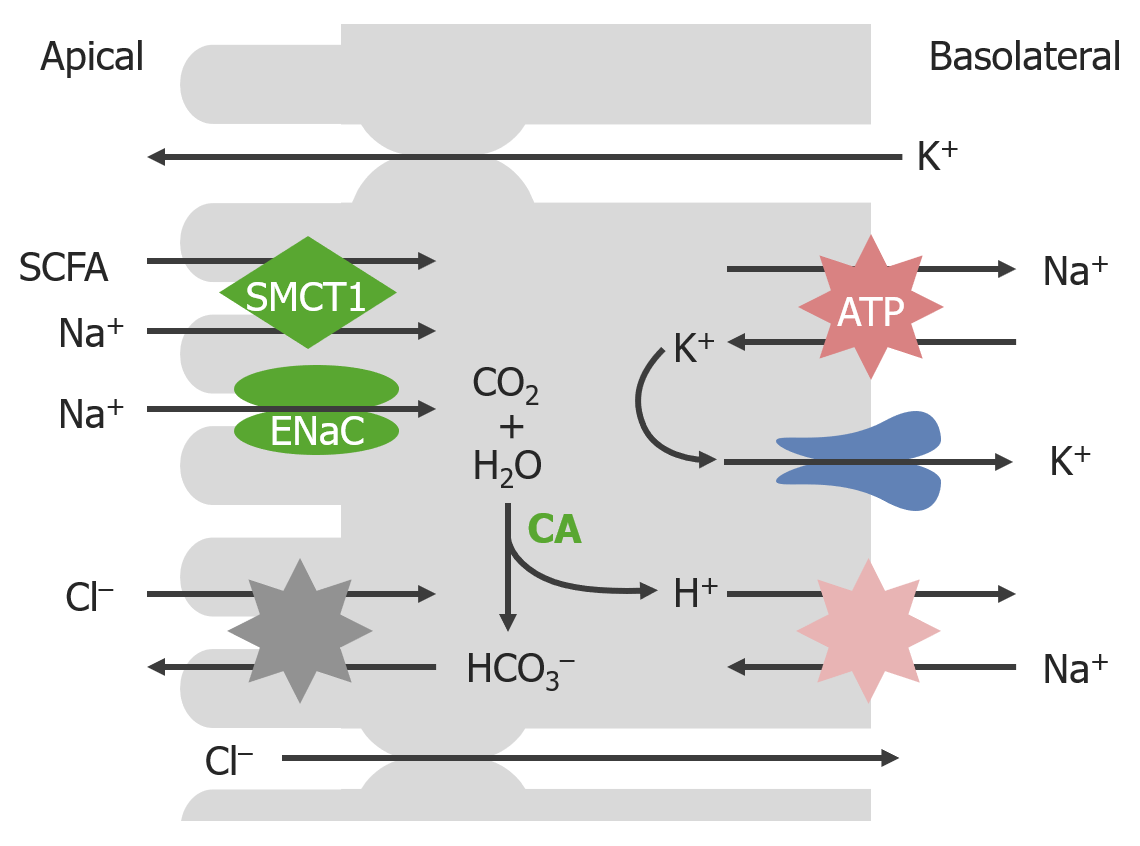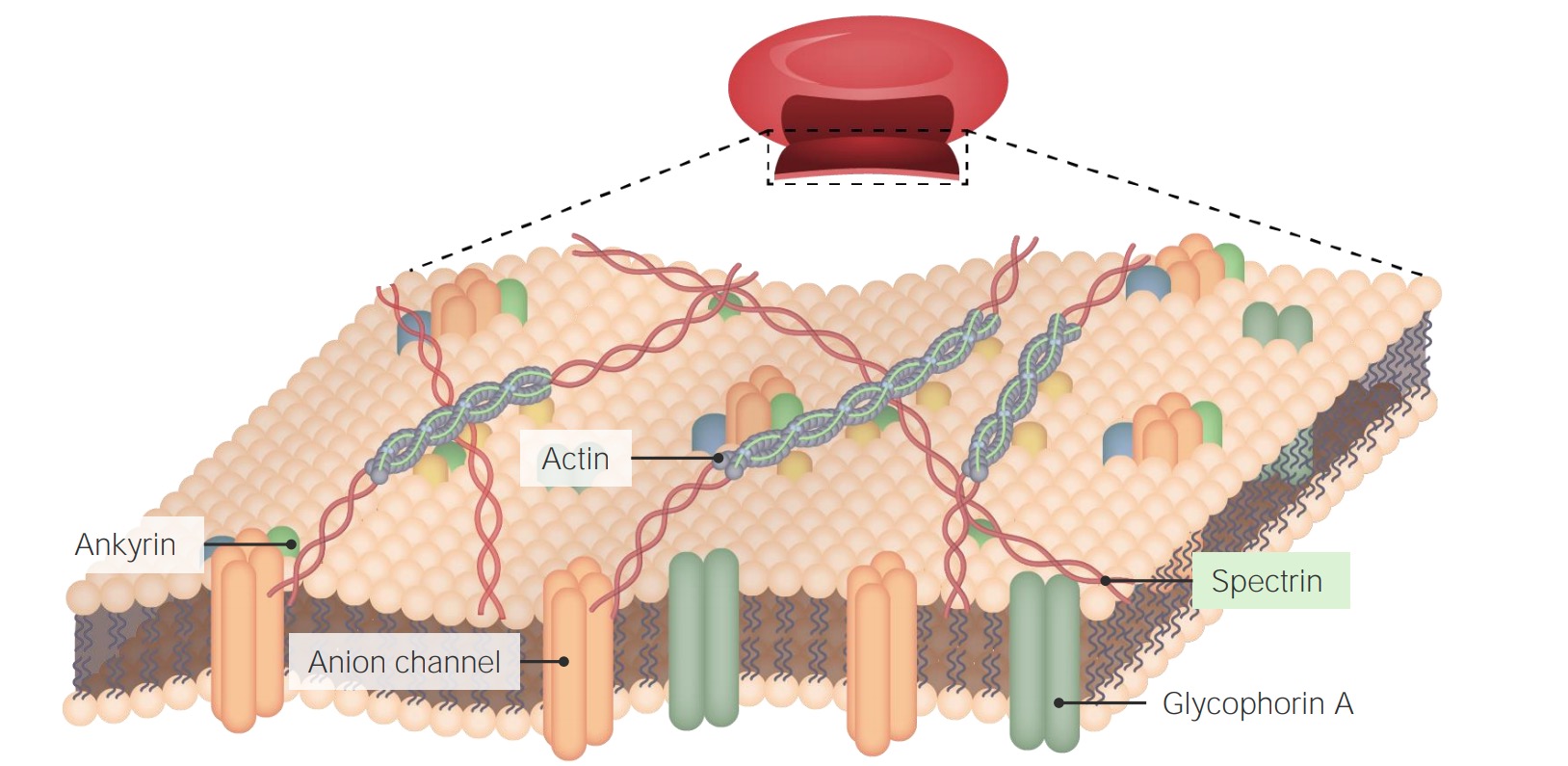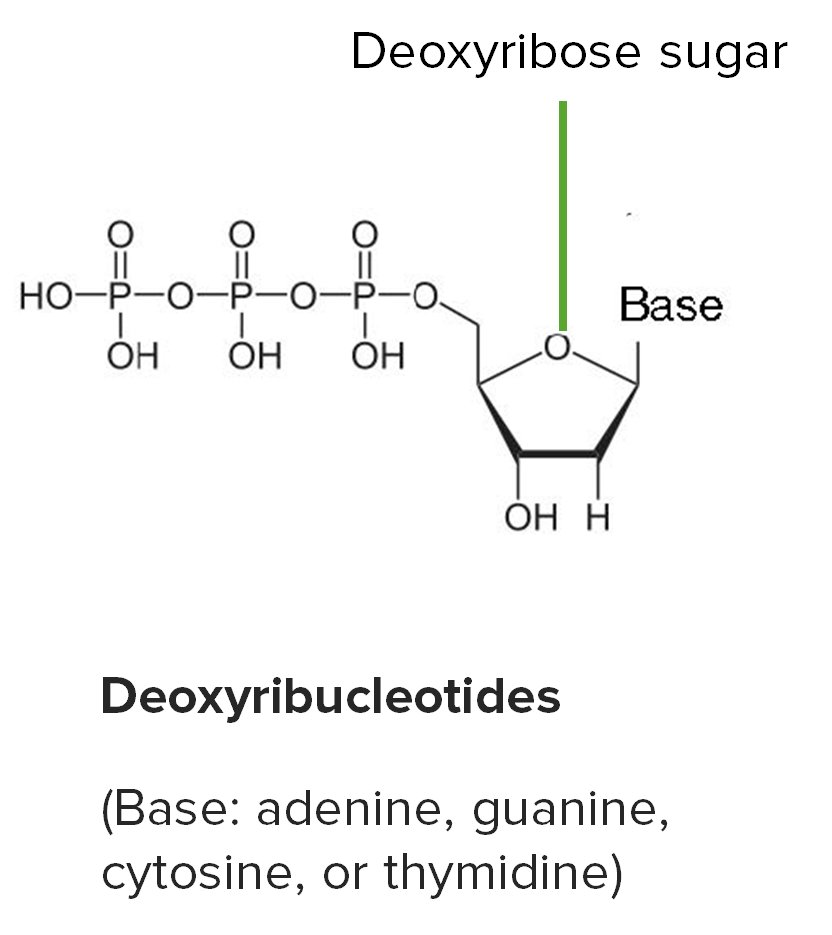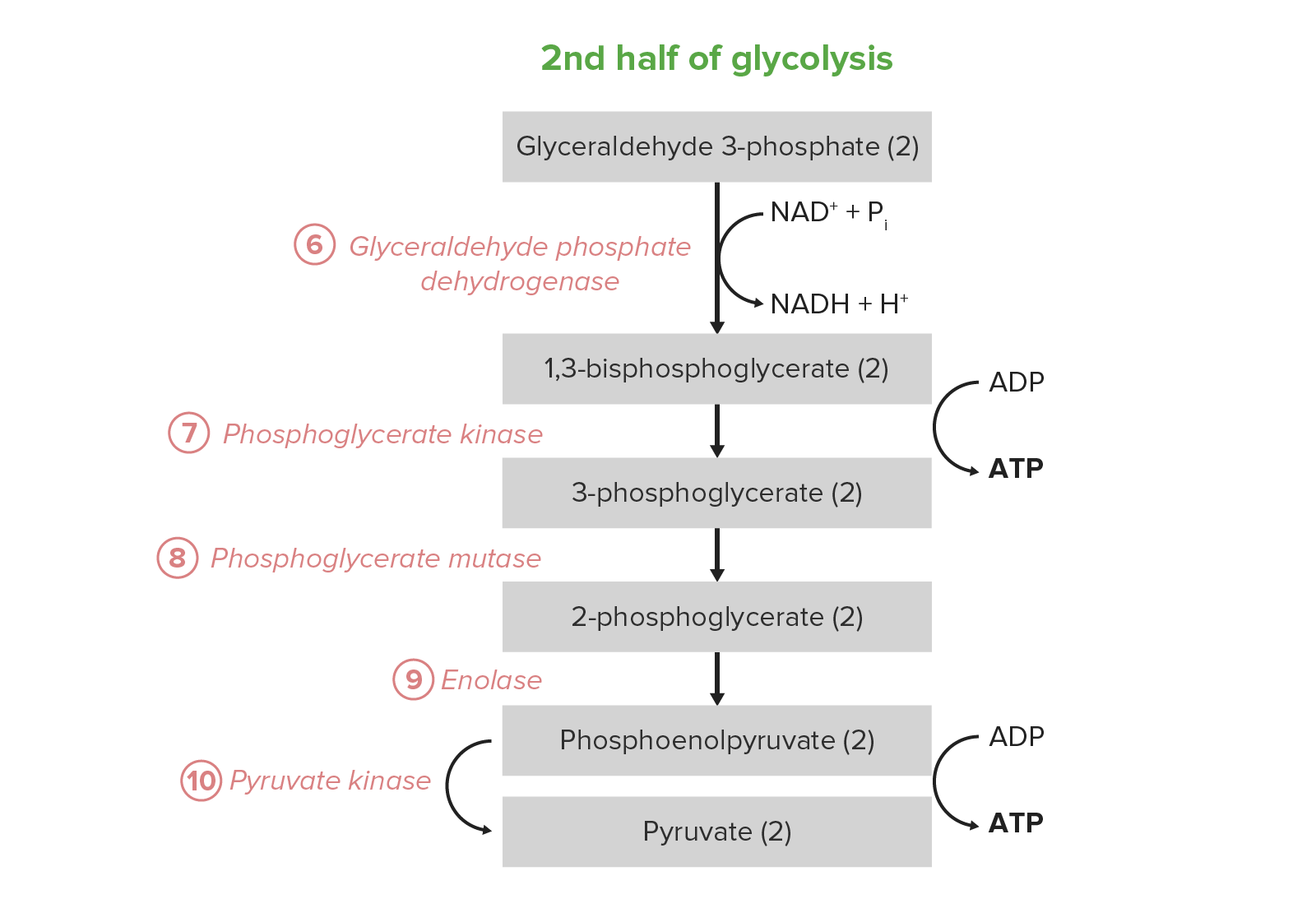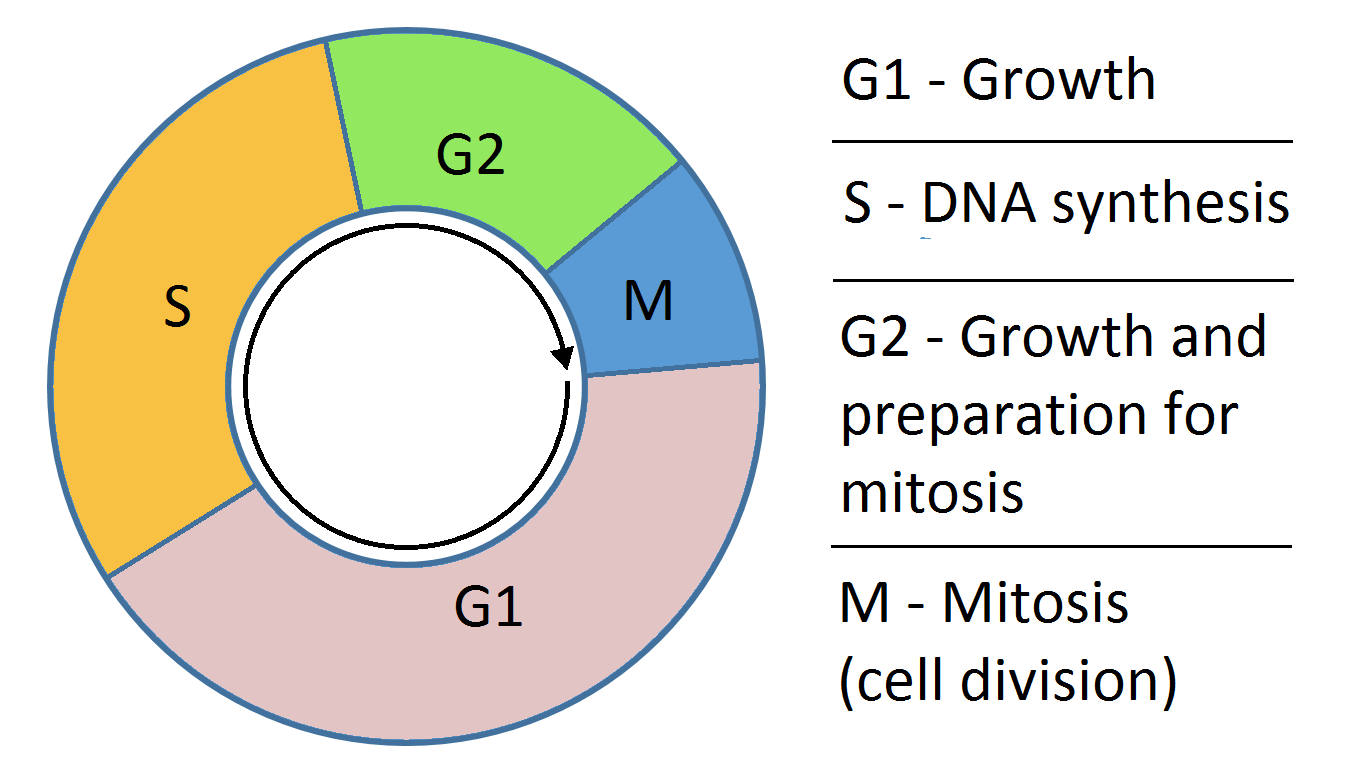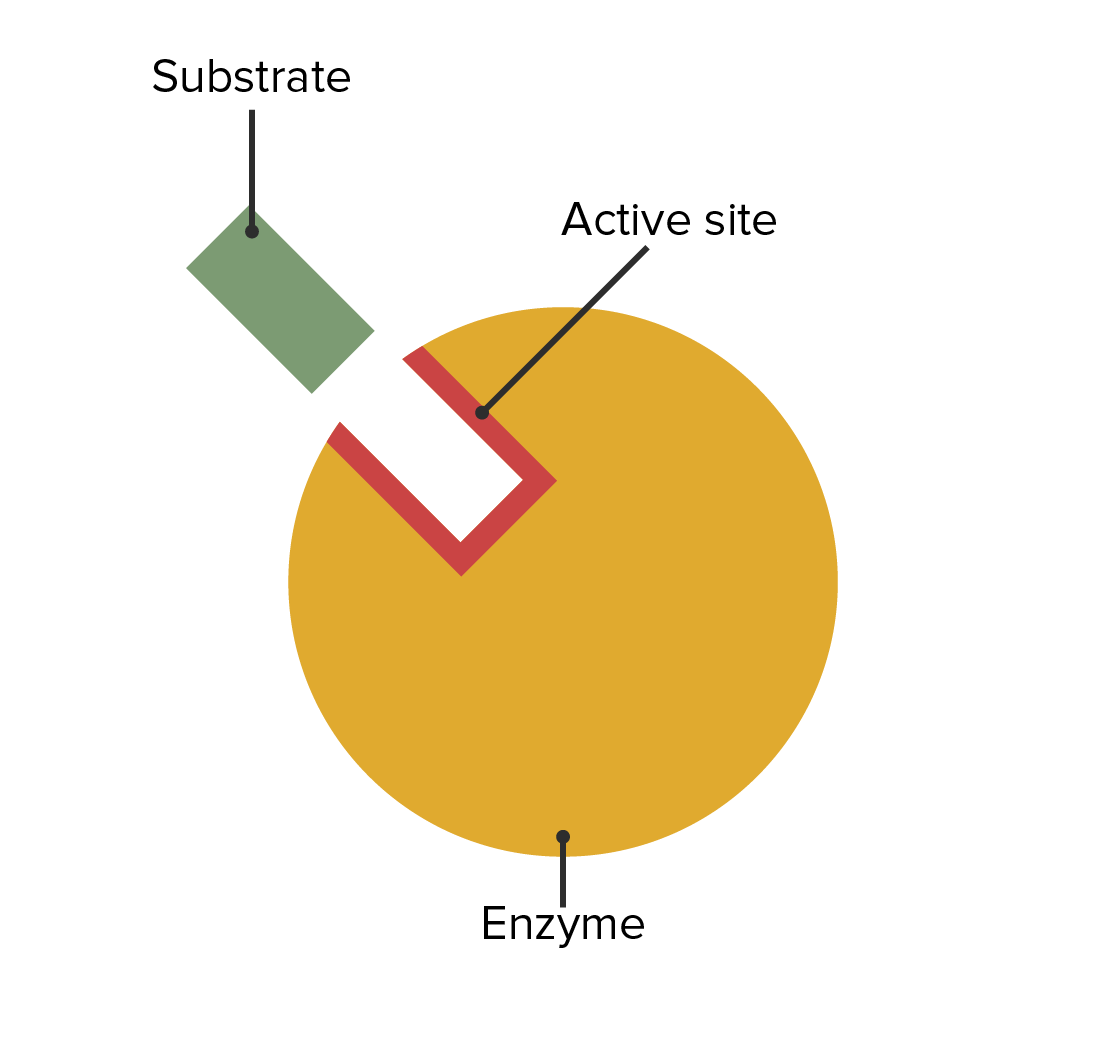Errors in the Video
By Peddi A. on 16. October 2023 for Fatty Acid Synthesis
I've reviewed the Video, and while it provides a comprehensive overview, there are a few points that need clarification.
"Fatty acid synthesis doesn't occur in the mitochondrion; it occurs in the cytoplasm, sequestered from fatty acid oxidation, simplifying the regulation of the two pathways."
Clarification: Fatty acid synthesis indeed occurs in the cytoplasm, separate from fatty acid oxidation that takes place in mitochondria. This separation allows for streamlined regulation, ensuring the balance between synthesis and breakdown.
"Fatty acid synthesis is chemically similar to the reverse of oxidation, involving joining, reduction, loss of water, and a final reduction, making it essentially the reverse of oxidation."
Clarification: Fatty acid synthesis does indeed involve joining of acetyl and malonyl units, reduction steps, and removal of water, making it similar but not exactly the reverse of oxidation. The subtle differences in the chemical steps are crucial for the controlled synthesis of fatty acids.
"The enzyme acetyl-CoA carboxylase is regulated through phosphorylation by AMP-activated protein kinase and allosteric binding of citrate, ensuring the balance between synthesis and cellular energy levels."
Clarification: Acetyl-CoA carboxylase, a key enzyme in fatty acid synthesis, is indeed regulated through phosphorylation and allosteric binding of citrate. This regulation allows cells to respond to energy demands, modulating fatty acid production accordingly.
"Fatty acid synthesis involves a series of steps catalyzed by the multifunctional enzyme fatty acid synthase, where individual activities within the enzyme complex work together, ensuring efficient fatty acid production."
Clarification: Fatty acid synthase, a multi functional enzyme complex, plays a central role in fatty acid synthesis. Its individual activities work in harmony within the complex, allowing for the sequential addition of carbon units and the creation of fatty acids up to 16 carbons in length.
Excelent
By Luis V. on 07. April 2022 for Lipid Metabolism
very precise, for a person with basic knowledge it is very helpful although I think it could be a bit difficult to understand for someone who does not know anything about these issues.
Great
By Rima E. on 08. January 2022 for Microarray Analysis – Analytical Techniques in Biotechnology
Dr. Ahem explained a complex concept in a very interesting and simple way. Straight to the point and informative. Thank you
Good and clear lectures! Thank you
By Ana Z. on 29. November 2021 for Pyrimidine Catabolism and Salvage Reactions
All of the videos on this topic are very good, thank you!! It made me finally understand it. I wish we would have more details on the pathologies related to the Purine and Pyrimidine pathways.
Amazing
By deleted u. on 05. November 2021 for DNA Replication and Repair
Short and simple. Right through to the significant things. Thanks to the professor.
Great summary
By Ana Z. on 16. September 2021 for Replication Fork
Wonderful, simple and easy-to-understand video. Finally got it
Too confusing
By Ana Z. on 16. September 2021 for DNA Repair
This video has several problems. It does not seem to be a continuation of the previous ones, it has unclear information, the reparation itself is not explained, and the name dropping doesn't help either.
Biochem
By Anna P. on 18. August 2021 for Steroids and Bile Acids: Movement of Cholesterol
Love this lecture. Dr. Ahern explains much better than my professor.
Amazing
By Jessica Marie T. on 14. August 2021 for DNA Replication and Repair
I FULLY recommend!! Definitely has help out in my courses.
DNA replication & repair by Dr. Kevin Ahern
By Saadia Z. on 03. July 2021 for DNA Replication and Repair
Comprehensive, latest information presented in an easy to understand formats. Thanks!
Explained really well
By Julianna Z. on 25. June 2021 for Allosteric Control – Metabolic Control of Enzyme Activity
I liked the way the R and T states where explained. It all became very clear
Hard to understand
By Daniel D. on 18. March 2021 for Purine and Pyrimidine Metabolism
It was hard to understand
It could be better another way to explain the topic
excellant
By manar A. on 10. October 2020 for DNA Polymerase
this is amazing thank you , i gained a lot of info about viruses that i have not know before
Review
By KARMELIA S. on 06. September 2020 for Pyrimidine de novo Metabolism: OMP Decarboxylase and Synthesis of UTP & CTP
First of all, I like the depth of this lecture and Professor Ahern is clearly very knowledgeable and concise on the the topic being discussed. And I also like due to the fact that this video is clearly a high-yield resource which is very helpful for my upcoming medical exam. However, I believe that this could have been better had the previous cycles preceding the formation of OMP explained as well in order for us the students to be able to get the essence of the information better. That's all I have got to say
Exellent resource for medical students.
By King D. on 02. September 2020 for Paths to Guanine and Adenine Nucleotides
Excellent Lecture from lecturio; I highly recommended for students from medical school. It is an excellent learning platform.
WHY LOVE LECTURIO?
By juan martin l. on 27. August 2020 for Lipid Metabolism
I love lecturio, it's the best app in the world.
Lecturio has everything you want and can help you to be the best in your class and also be the doctor you want.
Lecturio is an opportunity that can give you the change of your student life.
Awesome
By Ajit P. on 03. August 2020 for Purine and Pyrimidine Metabolism
His explanations are very good. Biochemistry made easy!! He is very good in teaching.
Excellent
By Ajit P. on 29. July 2020 for Purine de novo Metabolism Regulation
beautifuly explained. thankyou!!
Every point in every step was explained nicely.
Amazing
By Luis David U. on 08. June 2020 for Catabolism of Guanine & Hypoxanthine and Purine Nucleotide Salvage
Amazing way of teaching, compact and efficient. Really good job, keep doing it Mr. Ahern.
Good
By Gurudharshan M. on 04. June 2020 for Analogs: Adenosine, Deoxycytidine, Guanosine/Deoxyguanosine, Thymidine, Deoxyuridine
Has high yield infos which are not in other lecturer's lectures
Lipid metabolism is explained very well!
By Ghazal V. on 28. May 2020 for Lipid Metabolism
My professors at university failed to explain lipid metabolism in an understandable manner. Prof Ahern does a great job in explaining complex topics and I am really grateful for that. Thank you
good
By Sreevatsa S. on 07. April 2020 for Other Replication Proteins
this presentation was good and the way sir explained the concepts was nice
VERY clear and helpful!
By Joslyn D. on 24. March 2020 for Proteomics (2d Gel Analysis) – Analytical Techniques in Biotechnology
VERY clear explanation of how this works, I love Ahern's lectures.
Love it
By Dariana H. on 20. March 2020 for DNA Amplification – Analytical Techniques in Biotechnology
It is an xcellent explication! I understend it at all. Thank you
DNA Repair needs repair
By Parvaneh S. on 16. October 2019 for DNA Repair
The DNA Repair lecture was not very clear at all.
High-yield
By Evgeniya G. on 23. May 2019 for Steroids and Bile Acids: Movement of Cholesterol
Very high-yield. Thank you for underlining this moment, crucial in treating hypercholesterolemia.
Great lecture!
By Sree D. on 15. April 2019 for DNA Replication and Repair
Actually I saw the YouTube add . And I watched the lecture . The information is given in short and precise manner. Understood everything.
Clear and to the point
By nasan A. on 28. March 2019 for Purine de novo Metabolism Regulation
I loved how I understood the bigger picture in the end of the lecture
Review
By Ronnie E. on 24. January 2019 for Oxidation of Unsaturated and Other Fatty Acids
Very eloquent :) my favorite on this website! would definitely recommend.
Good introduction.
By Dr B. on 23. January 2019 for DNA Replication
A good introduction. Very schematic and overall easy to learn basics.
Excellent intro
By Victoria W. on 10. December 2018 for DNA Replication
Nice succinct intro with basic overview -- key points are highlighted
good review, need more quiz questions
By scott e. on 19. November 2018 for Fat Breakdown and Synthesis
Yea, these lessons site wide need more quiz questions. Only thing holding this site back from being outstanding.
Highly Recommended
By Mohammad H. on 22. September 2018 for Metabolic Control
Highly recommended lecturer for Biochemistry! I like his method, he is attractive teacher.
Clear & understandable
By Lauren B. on 05. September 2018 for Nucleotide Metabolism: Introduction and De novo Purine Metabolism
Thanks for focusing on the "big picture!" The lecturer at my school bogged us down with the details, so it was hard to take in what the most important steps were
High yield
By Joseph A. on 02. August 2018 for Analogs: Adenosine, Deoxycytidine, Guanosine/Deoxyguanosine, Thymidine, Deoxyuridine
Brief, understandable, high yield information explained with illustrative slides by Dr. Ahern
Use this, not that.
By Alex S. on 24. June 2018 for Purine and Pyrimidine Metabolism
This guy deserves a medal. I wish I had a lecturer like this when I was in undergrad (or even now in medical school).
Could be better!!!
By Maria de Lourdes C. on 29. May 2018 for DNA Replication and Repair
Not bad, but need to identify the polymerases better, as in the replication of DNA and RNA...
This is just what every medical student need to excel in this course
By Queeneth U. on 01. May 2018 for Lipid Metabolism
Wonderful! An awesome lecturer, he just has a unique way of passing the message.
Great work Sir
DNA replication
By Mark A. on 28. April 2018 for DNA Replication and Repair
Great lecturer very knowledgeable of subject matter at an admirable pace. Good job
Metabolic control
By Mark A. on 28. April 2018 for Metabolic Control
Great lecturer very knowledgeable of subject matter at an admirable pace. I needed this in med sch. Good job
lipid metabolism
By Mark A. on 28. April 2018 for Lipid Metabolism
Great lecturer very knowledgeable of subject matter at an admirable pace. Good job
Awesome Lectures
By Mark A. on 24. March 2018 for Purine and Pyrimidine Metabolism
This guy is on top of his game at a ridiculous speed... I can't complain only if all others know their stuff like him there will be less confusion
Well-organized content
By Glen K. on 15. March 2018 for DNA Repair
Care for details and passion/curiosity for knowledge are seen in this lecture. I gained a lot from it.
Really liked It
By Orlando U. on 27. February 2018 for DNA Repair
Very profesional,
why is it said that bacterial chromosome has a single origin of replication and eukaryotic multiple origins
Thank you
By Abhay K. on 12. February 2018 for DNA Repair
Thank you so much Sir for brief description of all topics.
Excellent Lecture :)
By Timothy B. on 22. December 2017 for Beta Oxidation of Fatty Acids
I finally understood why keto diet is so effective :) Thank you Dr. Kevin!
Well explained, using simple terms
By Siddhant G. on 07. December 2017 for DNA Repair
This lecture was very educational, and well organised, moving from the basics to the complicated topics, explaining every topic step by step.
Easy to understand.
By Sandra F. on 03. December 2017 for Metabolic Control
Excellent lectures. The professor speaks very clearly. He makes it easy to understand.
Loved it!
By Genevieve R. on 20. November 2017 for Fat Breakdown and Synthesis
The Good:
Lecture: 5/5 Amazing Lecture! I learned a lot!
The Not so good:
Quiz:2/5 Only 1 question....and was not as specific as I would like it to have been. Perhaps consider having at least 50% of the terms discussed included in the Quiz.
Lipids and eays metabolism
By Andreas F. on 02. October 2017 for Lipid Metabolism
Kevin must be the best teacher ever. He explains with a certainty only a person with many years of lecturing can. Simple, easy and fast, making complicated matters seem easy to learn.
Compared to the slides i have in med. school, the content is the same. But this guy also gives the explaination in the same amount of time!
His body language is also nice to watch as they are firm and open, kind of directing your thoughts, like a maestro.
You just have to remember and do some repetition of EVERY detail he mentiones, it will for sure be on the exam.
I also use his lectures to simplify my understandings from pdf files from school and heavy textbooks.
I will recommend everyone to use this!!
Also i love the quiz afterwards.
1rst year university medicine
Great
By David D. on 01. October 2017 for Catabolism of Guanine & Hypoxanthine and Purine Nucleotide Salvage
Fantastic lecture, just the amount of information I needed to cover and retain the topic.
Do better
By Neuer N. on 23. September 2017 for DNA Replication
few things are missing like discoiling of histone protien and a sentence is not repeates
Great lectures
By Jefferson P. on 24. August 2017 for DNA Replication and Repair
Brief and comprehensive lectures. Really makes mechanisms and actors really to understand.
Very easy to understand
By iutzi o. on 14. August 2017 for DNA Repair
Thank you so much Dr Kevin, this lecture series are the best that I have seen so far and explain very well, simple and practical a very complicated topic.
Worth every minute.
By Olga A. on 31. July 2017 for Allosteric Control – Metabolic Control of Enzyme Activity
A great, insightful lecturer. A Prof. at the top of his game. Miss his long hair though (checkout his youtube site)!
Showing the structure of the molecule is easy to understand each steps
By Shuangling C. on 29. July 2017 for Lipid Metabolism
Easy to understand with the structure of the molecule. Very clear and straight forward.
.
By Orel G. on 24. June 2017 for Pyrimidine de novo Metabolism: ATCase Reaction
It was very clear and explained well- the subject itself is usually hard to explain
Awesome
By Yuyutsu K. on 01. February 2017 for Lipid Metabolism
Very helpful
Keep it up .. easy to understand . Lecture in a simple way


